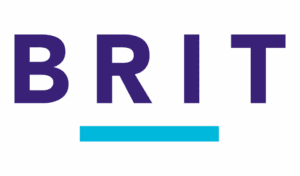Why small businesses want more insurance

Why small businesses want more insurance | Insurance Business America
SME
Why small businesses want more insurance
How can they prepare themselves going forward?
One in four (26%) small businesses are looking for better insurance coverage to safeguard themselves from challenging conditions with inflation, supply chain issues and talent shortages piling on the pressure, according to a recent Counterpart survey.
“Business owners are very mindful that these conditions, both the frequency and the degree of volatility, isn’t necessarily going away,” said Tanner Hackett (pictured), Counterpart’s CEO, a company that offers management and professional liability insurance products/services that help small businesses.
In an interview with Insurance Business, Hackett spoke about why some small businesses owners have been looking for new insurance agents, the risk management tips that are most helpful for insureds, and why EPL coverage is necessary.
“Small businesses are smarter about risk”
Having surveyed more than 300 participants, Counterpart’s 2023 Small Business Insights Report highlighted the most significant challenges facings SMEs in today’s market and how they are weathering these conditions.
Sixty-four per cent (64%) of respondents ranked inflation atop of their list of concerns, with changes in the Consumer Price Index (CPI) over recent times affirming these doubts. In second place, 36% of small business owners were also anxious over supply chain issues.
Furthermore, 33% of respondents were concerned about the challenges in hiring and recruiting talent, as well as retaining employees for the long haul.
Sixty-five per cent (65%) believed that these conditions would continue to increase, with almost 29% reporting a significant increase.
In the aftermath of the pandemic, and as SMEs persevere amid unstable conditions, Counterpart found that 99% of respondents were confident that they understood the business risks associated with managing people.
“Small businesses are smarter about risk,” Hackett said.
With this heightened awareness comes a need for insurance agents who are proposing active solutions to safeguard a client from evolving risks and persistent challenges.
“If the insurance agent is looking in the rearview at what was successful in the past and are copying and pasting that in the present, I think they’re going to struggle to retain customers that are much more savvy about the realities of this dynamic market,” the CEO said.
Nearly one fifth of participants (18%) admitted that they were actively searching for a new insurance agent in the future, while 34.6% admitted they were thinking about looking for a new agent.
“Building a great work culture is paramount”
It is more important than ever for insurance agents to continue to build that relationship with policyholders and offer the advanced risk insights they have, especially since some business owners are willing to seek new counsel and coverage, according to Hackett.
“The expectation is that insurance agents are going to be providing more consultative support and more risk management support for a small business rather than just a renewing the same policy that they had in the past,” he said.
Hackett looked to the Pareto principle, also known as the 80/20 rule, where 80% of consequences come from 20% of causes.
One of the most important steps a business can take is having an employee manual that is easily accessible with information that is clearly defined.
“Having a handbook and have them sign it is important because this is the definitive resource for how you expect people to behave both with customers and their fellow employees,” Hackett said.
This is especially crucial in the event of a potential claim, as it can help absolve a business from any wrongdoing if the loss event could have been prevented by following employer guidelines.
“Legally, you’re looking at this much differently than if somebody didn’t have a handbook,” the CEO said.
Furthermore, the most surefire way of avoiding losses and litigation is by establishing a thriving and inviting workplace.
“Building a great work culture is paramount,” Hackett said.
To do this, the expectations of the job need to be clearly aligned, especially when hiring, as some people may prefer long working days with lots of projects on the go while others may opt for more free time.
“It permeates the recruitment and onboarding process as it allows people to operate more autonomously because they understand the North Star of the business,” Hackett said.
Related Stories
Keep up with the latest news and events
Join our mailing list, it’s free!




